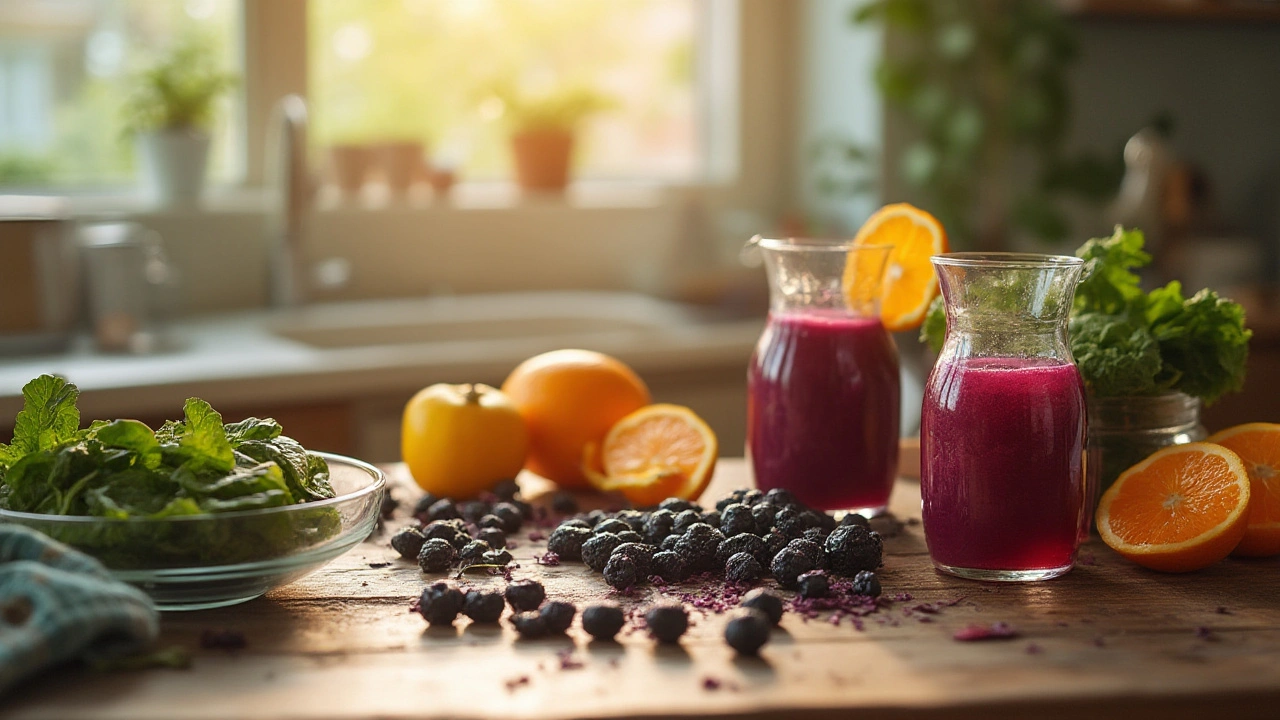Antioxidants: Simple Facts and Everyday Ways to Use Them
Ever wonder why doctors keep talking about antioxidants? In plain terms, they’re molecules that help keep harmful free radicals in check, so your cells stay healthier for longer. If you’ve heard the buzz around “oxidative stress,” think of it as the wear‑and‑tear your body experiences when free radicals run wild. Let’s break down what this means for you and how you can add more antioxidant power to your daily routine.
What Are Antioxidants?
Antioxidants are natural defenders that neutralize free radicals—unstable atoms that can damage DNA, proteins, and cell membranes. When you eat foods rich in antioxidants or take a supplement, you’re basically giving your body extra “batteries” to mop up those troublemakers. The most common antioxidants include vitamins C and E, beta‑carotene, and polyphenols like flavonoids. They’re not magical cures, but they do support your immune system, skin health, and even heart function.
Free radicals form during everyday activities: breathing, exercising, even just processing the food you eat. Stress, pollution, and smoking can crank up the production, too. That’s why a steady intake of antioxidants matters—your body can’t produce enough on its own. Think of antioxidants as the maintenance crew that keeps your internal engine running smoothly.
Best Foods and Supplements
Eating a colorful plate is the easiest way to load up on antioxidants. Berries (blueberries, strawberries, raspberries) are packed with anthocgreen and vitamin C. Dark leafy greens like kale, spinach, and Swiss chard bring vitamin E and lutein to the mix. Nuts and seeds—especially almonds, walnuts, and sunflower seeds—offer healthy fats that carry fat‑soluble antioxidants.
If you’re looking for a supplement, a daily vitamin C (500 mg) and vitamin E (200 IU) combo covers the basics. For a plant‑based boost, consider a green tea extract or a curcumin capsule (the active part of turmeric). Keep in mind that more isn’t always better; stick to the recommended doses to avoid any unwanted side effects.
Another easy habit: swap sugary drinks for green tea or hibiscus tea. Both are rich in polyphenols that fight oxidative stress without the extra calories. Even coffee, in moderate amounts, brings antioxidants to the table—just skip the heavy cream and sugar if you want the full benefit.
Aside from food, lifestyle tweaks help keep free radicals low. Get regular exercise, aim for 7‑8 hours of sleep, and manage stress with breathing exercises or short walks. Less exposure to cigarette smoke and pollutants also reduces the free‑radical load, meaning the antioxidants you consume can work more efficiently.
To sum up, antioxidants are your body’s natural protectors against everyday wear and tear. Load up on colorful fruits, veggies, nuts, and a sensible supplement if you need extra support. Pair that with healthy habits, and you’ll give your cells a solid chance to stay strong.
Ready to boost your antioxidant intake? Start by adding a handful of berries to breakfast or swapping out a sugary snack for a small handful of almonds. Small changes add up, and your body will thank you with better energy, clearer skin, and a stronger immune system.
Discover how bog bilberry can boost your health, packed with antioxidants, fighting inflammation, and supporting immunity. Learn real tips, benefits, and how to add it to your diet.
MoreCoffee isn’t just for mornings. Explore how coffee works as a dietary supplement, boosts your health, sharpens focus, and supports metabolic wellness.
More

